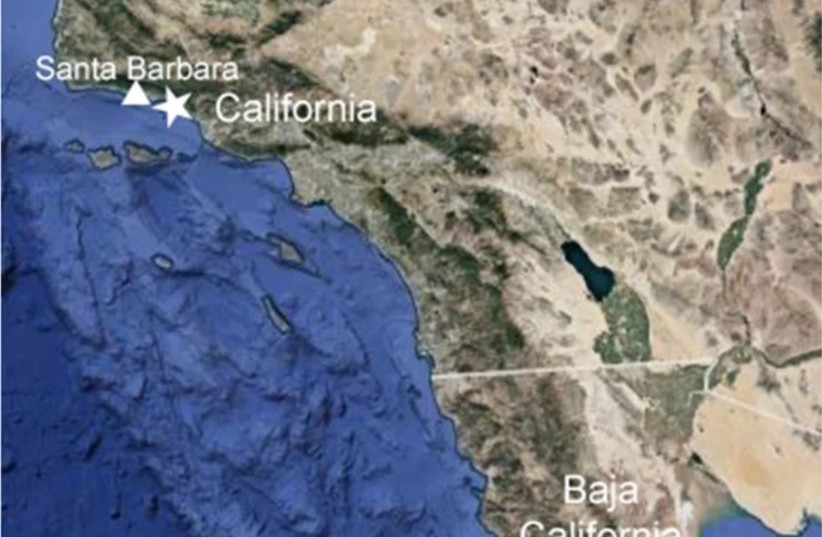Wildlife filmmaker Carlos Gauna and UC Riverside’s biology doctoral student Phillip Sternes were the first in the world to see a newborn great white shark in the wild in July 2023, near Santa Barbara on California’s central coast.
Gauna is well known for filming sharks around the world, and his videos of them swimming close to those at the beach have millions of views. He is known online as The Malibu Artist.
Their observations are documented in a peer-reviewed paper in the “Environmental Biology of Fishes Journal” on Monday. The paper also details the significance of having seen a live newborn white shark.
Great white sharks are the largest predatory sharks in the world, with the most fatal attacks on humans. They measure five feet long (1.5 meters) and are gray on top and white on the bottom. The newborn shark Gauna and Sterns saw was first seen on the viewfinder of Gauna’s drone camera. This great white pup was pure white.
Video of the newborn
“We enlarged the images, put them in slow motion, and realized the white layer was being shed from the body as it was swimming,” Sternes said. “I believe it was a newborn white shark shedding its embryonic layer.”

Since no newborn great white shark has been seen in the wild before, great white sharks’ birthing habits largely remain a mystery. These videos are the first to shed light on the birthing process of these deadly sharks.
“Where white sharks give birth is one of the holy grails of shark science. No one has ever been able to pinpoint where they are born, nor has anyone seen a newborn baby shark alive,” Gauna said. “There have been dead white sharks found inside deceased pregnant mothers. But nothing like this.”
Some have believed that pups are born in deep waters, however since this pup was filmed so close to shore, its age means it was likely born in shallow waters, disproving this previously held belief.
There is a possibility that the white film the shark shed could have been a skin condition, according to Gauna and Sternes, however this is unlikely because “no such condition has ever been reported for these sharks,” Gauna remarked.
Gauna and Sternes believed that they saw a great white shark pup because they thought they saw “the baby shedding the intrauterine milk.” When the pup is growing, the mothers offer additional nourishment with a ‘milk’ secreted in the uterus.
While in utero, the embryonic sharks might feed on unfertilized eggs for protein.
Another reason for this belief is that there is a presence of large, likely pregnant great whites in this location.
Gauna had observed them here in previous years and in the weeks leading up to this observation of the great white shark pup.
Gauna recounted, “I filmed three very large sharks that appeared pregnant at this specific location in the days prior.
On this day, one of them dove down, and not long afterward, this fully white shark appeared. It’s not a stretch to deduce where the baby came from.”
In addition, the shark’s size and shape also point to it being a newborn. What the two observed was thin, short, and rounded.
“In my opinion, this one was likely hours, maybe one day old at most,” Sternes said.
In this location, off the coast of central California, many have speculated that there is a birthing location for great white sharks. “There are a lot of hypothetical areas, but despite intense interest in these sharks, no one’s seen a birth or a newborn pup in the wild,” Sternes said. “This may well be the first evidence we have of a pup in the wild, making this a definitive birthing location.”
Great whites are listed as an endangered species.
“Further research is needed to confirm these waters are indeed a great white breeding ground. But if it does, we would want lawmakers to step in and protect these waters to help white sharks keep thriving,” Sternes said.
